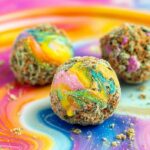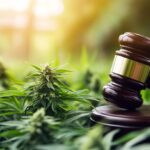CBD and Addiction: Potential for Substance Abuse Treatment
Introduction
The opioid epidemic and the rise of various substance use disorders represent daunting public health challenges. As a result, researchers and healthcare professionals are eager to discover innovative and effective treatment options. Amidst this search, cannabidiol (CBD), a non-psychoactive compound extracted from the cannabis plant, has gained attention as a potential ally in the fight against addiction. This guide will explore how CBD might assist in addressing substance use disorders, focusing specifically on its effects on withdrawal symptoms, cravings, and the overall recovery process.
Understanding CBD and Its Mechanism
At the heart of CBD’s appeal lies its interaction with the human endocannabinoid system (ECS). The ECS plays a vital role in regulating numerous physiological processes, such as mood, stress response, and pain management. Unlike THC—another well-known cannabis compound that produces a high—CBD is non-intoxicating, which makes it a more appealing option for those seeking relief without mind-altering effects.
Therapeutic Properties of CBD
Research has illuminated an array of therapeutic properties that suggest CBD may be beneficial in the context of addiction recovery:
- Modulation of the Brain’s Reward System: CBD appears to influence the brain’s reward pathways. By reducing the rewarding effects associated with substances like opioids and cocaine, it may help quell the intense cravings that often accompany addiction.
- Anxiolytic and Anti-Inflammatory Effects: CBD is noted for its ability to alleviate anxiety and stress, both common during withdrawal and recovery phases. Its anti-inflammatory properties may also help mitigate brain damage resulting from substance abuse.
- Analgesic Properties: With potential pain-relieving effects, CBD could provide comfort and diminish reliance on opioid-based medications for pain management, making the recovery journey more manageable.
CBD’s Impact on Addiction Recovery
Reducing Cravings and Anxiety
Research indicates that CBD can significantly alleviate cue-induced cravings and anxiety levels in individuals with a history of heroin use. A noteworthy clinical trial conducted by Mount Sinai’s Cannabidiol Research Program revealed that participants receiving CBD reported a reduction in cravings and anxiety weeks after their treatment. The implication is that CBD can extend support beyond the clinical setting, aiding individuals as they navigate their recovery.
Managing Withdrawal Symptoms
Withdrawal signifies a challenging phase in the path to sobriety. Symptoms can vary from physical discomfort, nausea, and pain to psychological challenges such as anxiety and mood swings. CBD shows promise in offering relief during this critical juncture due to its anti-inflammatory, analgesic, and anxiolytic effects. This multifaceted support could greatly ease the tumultuous journey of detoxification.
Potential Benefits Across Various Addictions
CBD’s promising role is not limited to opioid addiction alone; it has shown potential benefits in several substance use disorders:
- Opioid Addiction: Research indicates that CBD can diminish the rewarding aspects associated with opioids. Studies suggest it may assist in curbing relapse risk and reducing drug-seeking behaviors.
- Cannabis and Tobacco Addiction: Emerging data suggests that CBD could play a role in helping individuals overcome cannabis and tobacco addiction. For example, a study noted a decrease in cigarette consumption among participants eager to quit after using CBD.
- Cocaine and Psychostimulant Addiction: Preclinical studies hint at CBD’s potential therapeutic role in treating cocaine and psychostimulant addiction. However, further investigations are essential to corroborate these findings.
Current Research and Studies
Ongoing research continues to expand our understanding of CBD’s role in addiction recovery:
- Mount Sinai’s Cannabidiol Research Program: This initiative is delving into CBD’s potential benefits for opioid use disorders through various ongoing studies, including neuroimaging to examine CBD’s effects on the brain and clinical trials assessing its efficacy in alleviating cravings and anxiety.
- Clinical Trials: Numerous trials have emerged, testing CBD’s potential to diminish drug cravings and anxiety. Results thus far have been promising, with CBD showing stronger efficacy compared to placebo in alleviating withdrawal symptoms.
Implications and Future Directions
Despite the encouraging data, the journey of exploring CBD as a treatment option continues. Here are some vital points to keep in mind:
- Need for Larger Studies: While initial studies show promise, larger and more rigorous research is needed to ascertain the long-term efficacy of CBD in addiction recovery and identify which patients may benefit most from its use.
- Regulation and Policy: Regulatory frameworks must evolve to ensure that consumers access safe, pure, and effective CBD products. Policymakers should support research focused on regulated CBD formulations, which could yield better outcomes than unregulated ones.
- Complementary Treatment: CBD holds potential as a supplemental treatment alongside traditional recovery services. It may provide an alternative for individuals who are hesitant to utilize traditional opioid agonist therapies, such as methadone or buprenorphine.
Conclusion
The potential of CBD as a treatment for substance use disorders cannot be overstated. With its ability to minimize cravings, aid in managing withdrawal symptoms, and support the recovery process, CBD showcases promise as a complementary aid in addiction recovery. However, as scientific inquiry progresses, healthcare professionals, policymakers, and individuals pursuing recovery should remain poised to embrace the evolving body of knowledge surrounding CBD’s role in combating addiction.
Actionable Tips for Those Considering CBD for Addiction Recovery
- Consult Healthcare Professionals: Prior to using CBD, it is essential to consult with healthcare providers to discuss its potential benefits and risks, ensuring it complements existing evidence-based treatment approaches.
- Choose Regulated Products: When selecting CBD products, opt for those that are rigorously tested for purity and potency. This helps to avoid adverse effects and maximize benefits.
- Participate in Clinical Trials: Engaging in clinical trials can contribute to the ongoing research effort surrounding CBD and addiction recovery, aiding in the development of effective treatment protocols.
In incorporating CBD into a comprehensive treatment plan for addiction, individuals may find enhanced support as they work toward recovery, facing the challenges of addiction with renewed hope and resilience.




















